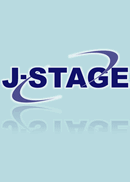Volume 22, Issue 2
Displaying 1-5 of 5 articles from this issue
- |<
- <
- 1
- >
- >|
-
2006Volume 22Issue 2 Pages 1-10
Published: August 25, 2006
Released on J-STAGE: September 24, 2012
Download PDF (1781K) -
2006Volume 22Issue 2 Pages 11-22
Published: August 25, 2006
Released on J-STAGE: September 24, 2012
Download PDF (1788K) -
2006Volume 22Issue 2 Pages 23-43
Published: August 25, 2006
Released on J-STAGE: September 24, 2012
Download PDF (3949K) -
2006Volume 22Issue 2 Pages 45-63
Published: August 25, 2006
Released on J-STAGE: September 24, 2012
Download PDF (7823K) -
2006Volume 22Issue 2 Pages 65-76
Published: August 25, 2006
Released on J-STAGE: September 24, 2012
Download PDF (1644K)
- |<
- <
- 1
- >
- >|
